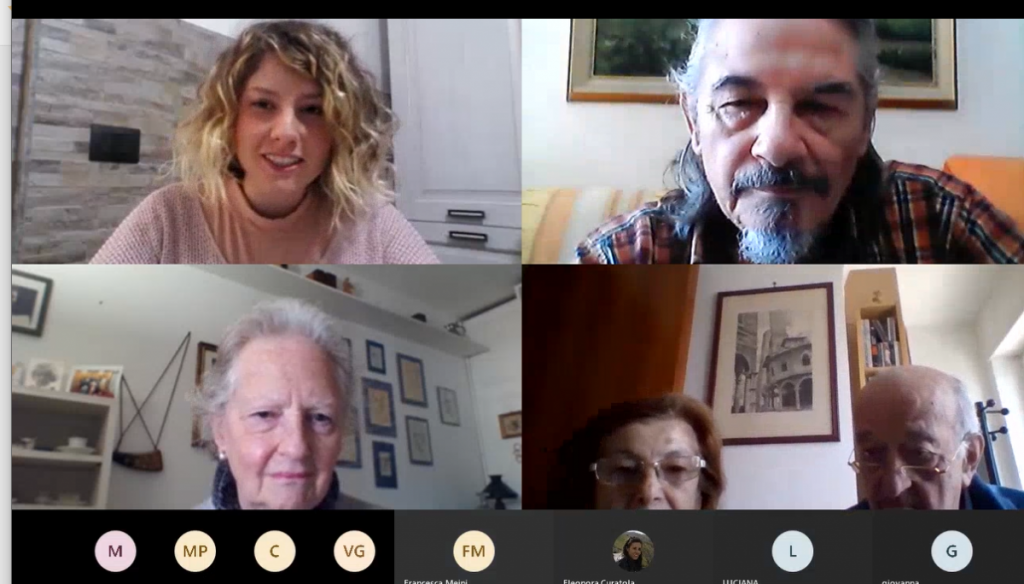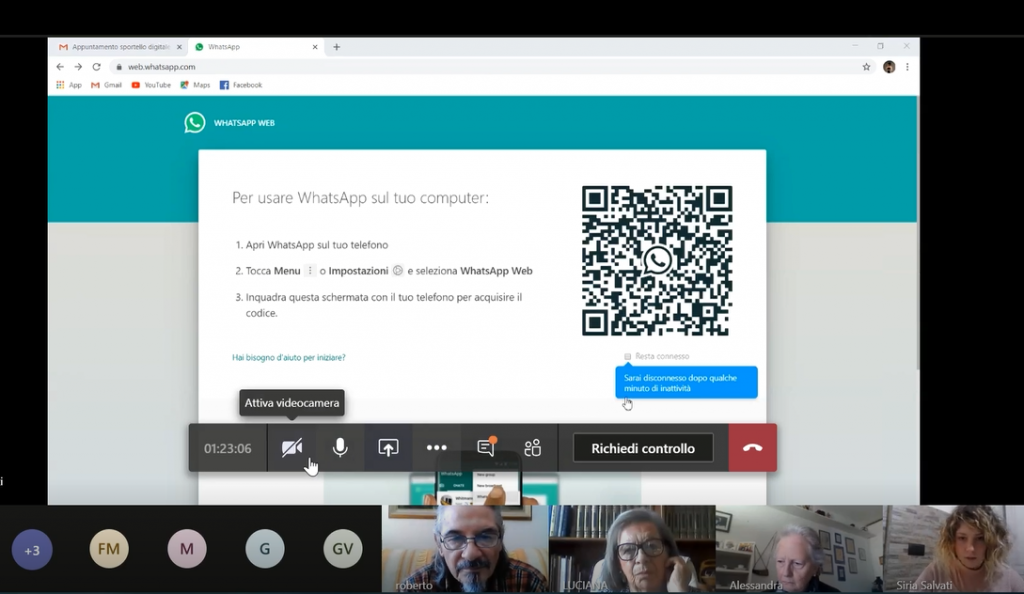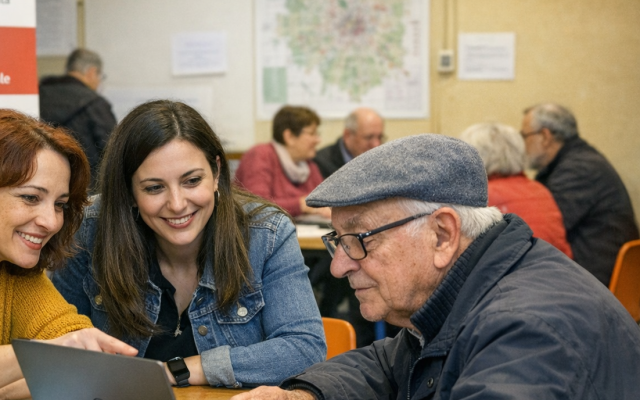For the last four weeks, at 3:45 pm every Wednesday, Cristina, Maria, Roberto, Alessandra, Giovanna, Luciana, Maria, Zaira, Ivonne, Graziella and Vittorio connect to the Microsoft Teams Platform for the new digital help desk designed for over-65s. They are all over-70s who have already completed our digital literacy courses and are now experimenting with lifelong learning or Grandparents on the Internet during the coronavirus emergency.
"Initial access to the platform was complicated and required a lot of telephone support on how to open mails, click links to access the platform, fields to fill out, how to activate and disactivate cameras and microphones and on how to not speak at the same time or to others, during the session!" explains Eleonora Curatola [@Eleonora_FMD] who is specialising in digital literacy projects for adults and elders. "It took half an hour to get everyone connected and start the lesson the first time, but now when I connect on Thursdays, they are all there and ready with the video cameras on and their microphones off. And impatient to start learning."

How do the on-line sessions take place? "We have a quick roll call and then turn the word over to the elders. Then we turn to the focus of the week: did they manage to videocall their grandchildren? Did they create WhatsApp groups with their friends? Then, they access the “Poste italiane” website and begin a new lesson," explains Eleonora.
The on-line sessions are held by Siria, a 19 year-old knowledge volunteer and former student at the Liceo Vito Volterra in Ciampino (Rome). Last year, she participated as a tutor in the Grandparents on the Internet Course that was held at her school. Now, she is studying Geology and pursuing her passion for singing.
During the weeks of isolation and physical distancing, Siria taught the elders how to register with RaiPlay, use WhatsApp, access the “Poste italiane” website, send and download attachments, record video, transfer photos from mobile phones to PCs, register on portals, find information on-line and recognize fake news, phishing, etc. "Session after session, it was surprising to see their interest and help them improve their skills. They always ask with respect and affection,” adds Eleonora.

"One thing that digital tools have introduced is the complicity and mutual help that is growing amongst over-60s who have met on the platform and share advice, suggestions and help. Maybe this new period of isolation will become the opportunity to forge new friendships and increase peer solidarity."



